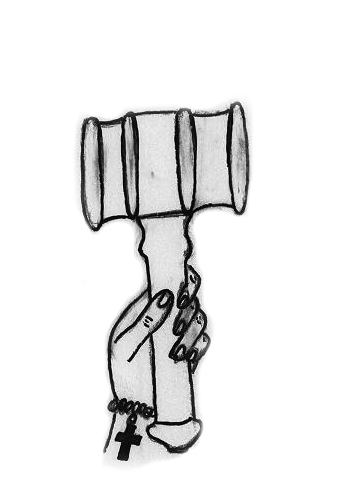Thanks to the Supreme Court, religious organizations recently got much more powerful, and much more dangerous.
In the case of Hosanna-Tabor Evangelical Lutheran Church and School v. EEOC, the Supreme Court decided that the Hosanna-Tabor Church had a right to fire teacher Cheryl Perich on the grounds that she threatened legal action against the church.
Perich had been on leave because she had developed narcolepsy, a disease that causes one occasionally to fall asleep involuntarily. When she wished to return to her teaching job, the church for which she worked tried to get her to resign. When the church threatened to fire her, she announced that she intended to sue. This was in violation of the Lutheran Church’s belief that legal matters must be settled within the church itself. And there’s where things get tricky.
SCOTUS decided unanimously that Perich fell under what is known as “ministerial exemption.” Basically, because Perich was a minister (as decided by SCOTUS), she did not have every legal protection the law can give; the First Amendment outweighed some of her legal rights.
The problem is that “minister” has never been fully defined, and Chief Justice Roberts, in the court opinion for the case, wrote that the court is “reluctant…to adopt a rigid formula for deciding when an employee qualifies as a minister.”
This turns out to be a serious problem. Justice Alito wrote, “The term ‘minister’ is commonly used by many Protestant denominations to refer to members of their clergy, but the term is rarely if ever used in this way by Catholics, Jews, Muslims, Hindus, or Buddhists.”
So, not only does “minister” have no solid legal definition, but it also has no meaning at all in many religions. Can this obscurity be taken advantage of? Absolutely.
Now, religious organizations can exercise their First Amendment right in unintended ways. Any such organization need only give their employees a semblance of religious importance in order to discriminate unfairly.
In Hosanna-Tabor v. EEOC, Perich was a “called” teacher; that meant that she was supposedly chosen by God to teach. Now, SCOTUS chose to ignore the fact that Perich’s religious duties constituted only 45 minutes of each workday. In fact, Chief Justice Roberts wrote that the Sixth Circuit Court of Appeals (who ruled in Perich’s favor) was mistaken in thinking that was of any importance.
So, “called” teachers—”chosen by God”—are not protected. Who else is unprotected from discrimination? Is it enough merely for a church to insist that its employees are “chosen by God” in order for them to bypass employment discrimination laws? According to the court, absolutely.

